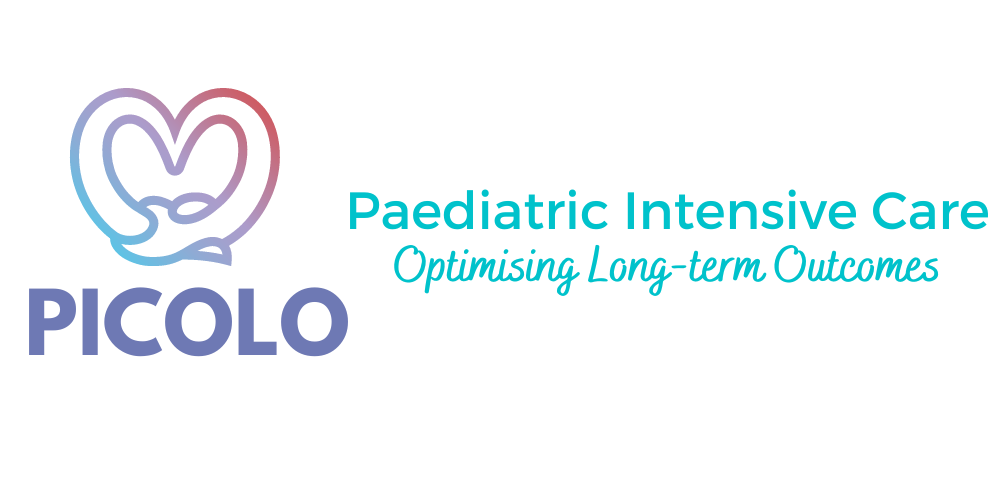RESPOND Study
Resuscitation in Paediatric Septic Shock using Hydrocortisone, Vitamin C, and Thiamine - A Randomised Controlled Multicentre Trial (RESPOND study)
One potential strategy to hasten shock resolution consists of using intravenous steroids. Recently, the combination of intravenous Hydrocortisone with Thiamine and Vitamin C, postulated to support metabolic dysfunction and reduce sepsis-related endothelial dysfunction, has been proposed as a safe and economic strategy with dramatic improvement reported in single center adult observational studies.
In view of the controversy around currently recommended paediatric sepsis resuscitation treatment, and the potential promise of early metabolic resuscitation, we believe that a randomised control trial to investigate this is justified. The interventions are based on easily available drugs with well described safety profile. Additionally, they are cheap and widely used in paediatrics.
Sepsis is a leading cause of death and disability in children globally accounting for over >1million childhood deaths per year. In Australia and New Zealand, over 50 children die each year because of sepsis and total hospitalization related costs due to sepsis amount to >$100M annually. Up to a third of sepsis survivors suffer from long term disabilities related to amputations and neurological impairment. Several therapeutic approaches have failed to show a mortality benefit and sepsis outcome improvements have been moderate at best in children over the past decade.
Despite large campaigns and quality improvement initiatives implementing sepsis treatment bundles consisting of intravenous antibiotics, aggressive fluid boluses, followed by inotropes and consideration for intravenous steroids, the evidence for interventions other than antibiotics is limited. Both the treatment recommendations and the selection of therapeutic endpoints are largely based on expert consensus and limited low grade evidence resulting from earlier observational studies. This indicates an urgent need for novel sepsis resuscitation studies in children.
Paediatric sepsis is a rapidly progressive disease with onset of sepsis-related Multi Organ Dysfunction Syndrome and the majority of deaths occurring within 48 hours of presentation, hence sepsis interventions need to be applied early during disease to modify outcome. In contrast to previous septic shock studies targeting children in PICU at advanced stages of disease, this study therefore is aiming to intervene early after presentation to Emergency Departments and Intensive Care Units using prospective consent and consent to continue. The study design is based on the experience from a pilot study conducted at our site which has confirmed feasibility and safety of the approach.
The study is designed to integrate data collection to allow assessment of patient selection, and healthcare related costs. In addition, the perspective of parents and patients will be assessed on presentation, upon 28 days, and six months post randomization to assess quality of life, cognitive and functional outcome, and to inform on patient-relevant value of care delivered.
The study is unique in combining the expertise of the leading paediatric hospitals in Australia involving the Emergency Department and Paediatric Intensive Care Unit as a continuum of care to address one of the leading killer diseases in children. The study is supported by a very experienced paediatric acute care research network and is strengthened by important patient-centred and economic endpoints such as mortality, utilisation of intensive care resources, and long term impact including extensive assessment of consumer perspective.
PROTOCOL SYNOPSIS
Objectives: To investigate in a randomized controlled trial in children presenting with septic shock early intravenous administration of Vitamin C (100 mg/kg 6 h), Thiamine (4 mg/kg 12 h) and Hydrocortisone (1 mg/kg 6 h) and the impact on survival free of intensive care.
Design: Randomized controlled trial
Outcomes
Primary outcome: PICU free survival (censored at 28 days)
Secondary outcomes:
Survival free of organ support
Survival free of cardiovascular support
Survival free of ventilation
Mortality
Hospital length of stay
Direct hospitalization-related costs
Functional outcome and Quality of Life at 28d and at 6 months post discharge
Participants: 300 in total
Population: Children greater than 7 days and less than 18 years where septic shock persists despite initial resuscitation and requiring admission to PICU with ongoing inotrope requirement of greater become eligible for the Intervention.
Intervention:
Intervention 1: Early intravenous resuscitation with Hydrocortisone/Vitamin C/Thiamine
Intervention 2: Intravenous Hydrocortisone only
Standard Arm 3: No early treatment with Hydrocortisone/Vitamin C/Thiamine
Study Duration: 36 months
INVESTIGATORS:
Study Management Committee:
A/Prof Luregn Schlapbach, Queensland Children’s Hospital, and Paediatric Critical Care Research Group, The University of Queensland, Brisbane, QLD
Dr Sainath Raman, Queensland Children’s Hospital, and Paediatric Critical Care Research Group, The University of Queensland, Brisbane, QLD
Prof Rinaldo Bellomo, Director of Intensive Care Research at the Austin Hospital; Professor of Intensive Care Medicine, University of Melbourne; Honorary Professor, Monash University, The George Institute of Global Health, University of Sydney
A/Prof Kristen Gibbons, Statistical Expert, The University of Queensland, Brisbane
Dr Simon Erickson, Perth Children`s Hospital
Dr Ben Gelbart, Royal Children`s Hospital Melbourne
Dr Shane George, Gold Coast University Hospital
Site investigators and site contacts:
Queensland Children`s Hospital:
Dr Sainath Raman
A/Prof Luregn Schlapbach
Ms Amanda Harley
Ms Roberta Ridolfi
Ms Natalie Sharp
A/Prof Debbie Long (Follow-Up lead)
Ms Michele Cree (Pharmacy lead)
Gold Coast University Hospital:
A/Prof Shane George
Sunshine Coast University Hospital:
Dr Paula Lister
Dr Jessica Mills
Royal Children`s Hospital Melbourne:
Dr Ben Gelbart
Carmel Delzoppo
Warwick Butt
Perth Children`s Hospital, Perth:
Dr Simon Erickson
Women's and Children's Hospital, Adelaide
Dr Subodh Ganu
Sydney Children`s Hospital, Sydney:
Dr Puneet Singh
The Children’s Hospital at Westmead, Sydney
Dr Marino Festa
Dr Chong Tien Goh
Starship Children`s Hospital, Auckland, NZ.
Dr David Buckely
Dr John Beca
University Children`s Hospital Zurich, Zurich, Switzerland.
Prof. Luregn Schlapbach


